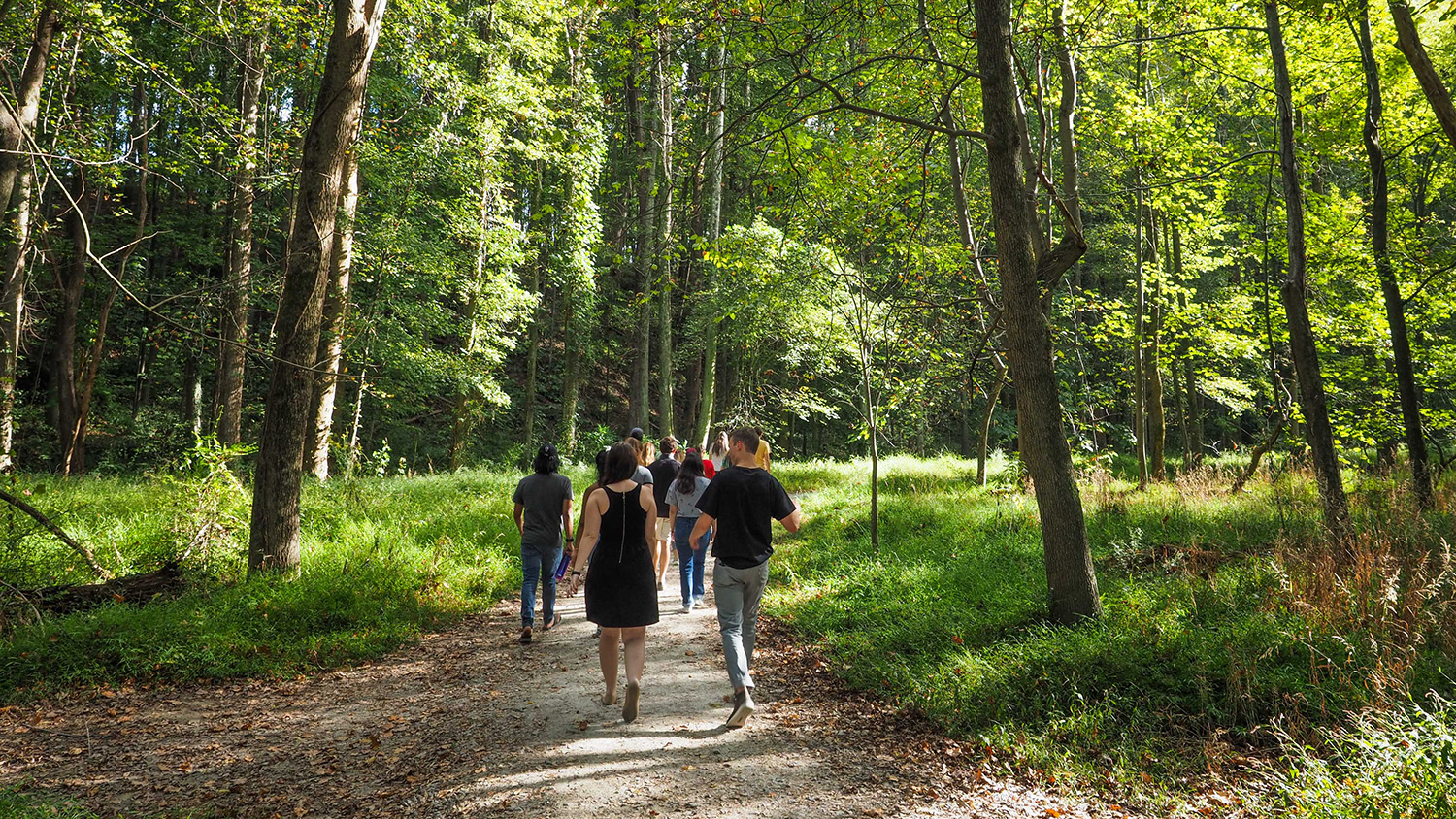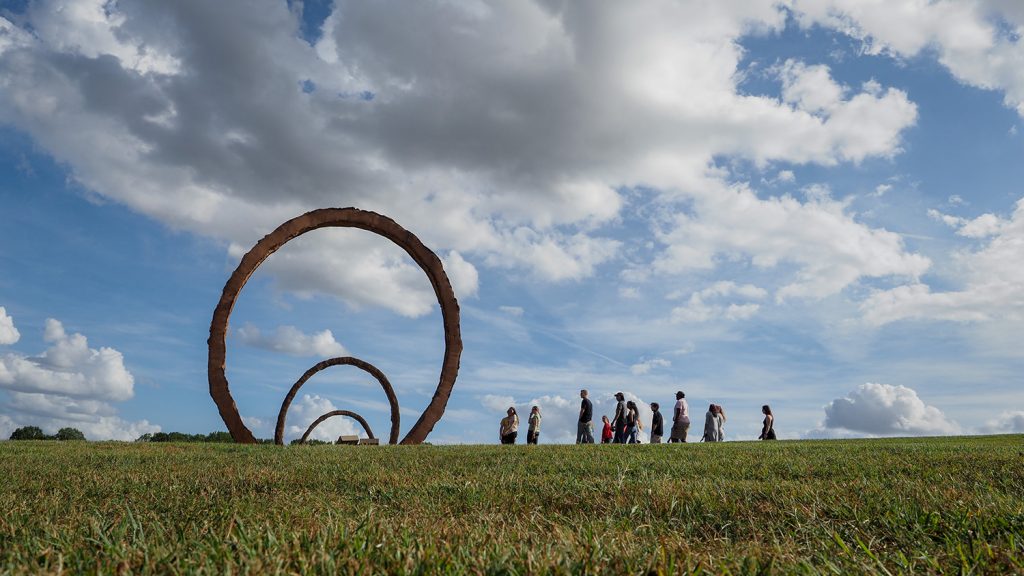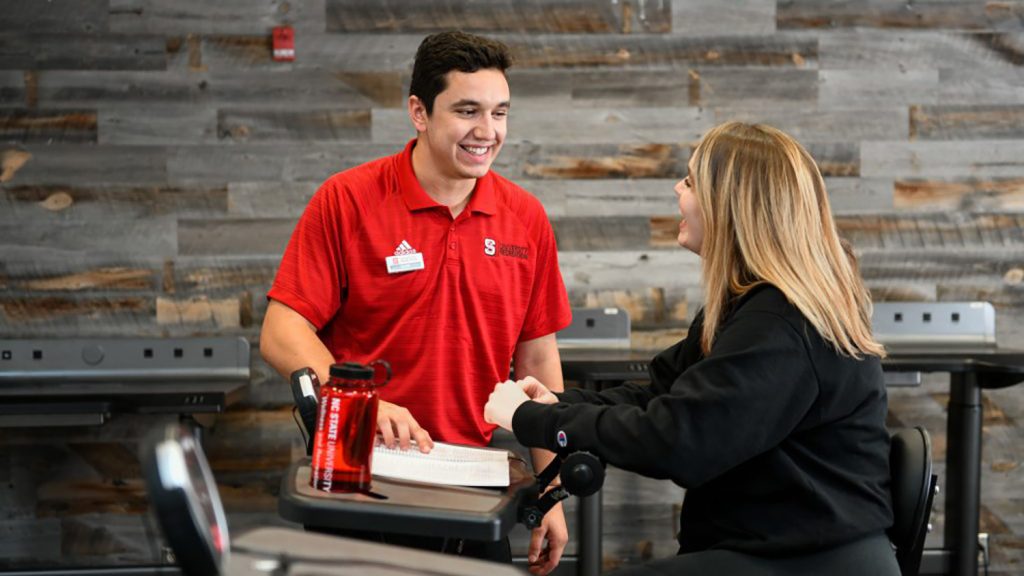A Hidden Struggle
Learn about the NC State centers and programs helping to tackle the taboo of mental health on campus.

The following story includes discussion of suicide. If you or someone you know needs immediate help, a counselor is always available through the NC State Counseling Center. Emergency services can be accessed 24 hours per day, 365 days per year, by calling 919.515.2423.
Sam Katowitz, a junior working on his degree in psychology, speaks with a smile on his face as he talks about his life as a student at NC State. In his first semester in 2016, he made good grades, built friendships and got involved on campus. But, he says, he had perfected the art of “putting up a front.”
Diagnosed with obsessive compulsive disorder at an early age, Sam was no stranger to therapy or counseling. What he was good at hiding, though, was a constant struggle with overanalyzing the past and worrying about the future. When he started at NC State, he says those feelings compounded, and even though he was surrounded by others, he felt very alone.
Sam attempted suicide at his parents’ Wake Forest home during spring break his first year, just seven months after starting at NC State.
“I woke up two days later at the hospital and it was devastating,” Sam says. “At that moment all I could think about was that I wished I had completed suicide.”
A National Trend
Nationally, reports show that the number of college students experiencing anxiety, depression and suicidal ideation continues to rise. From 2009 to 2015, the number of students seeking services at counseling centers across the country increased by nearly 30 percent, according to a report from the Center for Collegiate Mental Health.
Those trends are reflected at the NC State Counseling Center, located on Cates Drive in the Student Health building.
Between 2012 and 2018, the Counseling Center has seen a nearly 40% increase in overall demand for counseling services, which include things like one-on-one counseling, group therapy and other programming. They’ve seen a 12% increase in students — nearly 700 more per year — presenting with suicidal thoughts. And, at intake, more students are presenting with depression symptoms (13% increase) and generalized anxiety (18% increase).
“Overall enrollment at NC State has remained fairly consistent over the past few years, but we’ve seen major increases in the need for services,” Monica Osburn, director of the Counseling Center says. “This all translates to more students presenting at the Center with more profound issues, which is consistent with what other campuses across the country are experiencing around mental health.”
Osburn says the increase in Counseling Center utilization can likely be attributed to several factors. She says stigma around asking for help has been significantly reduced in society the past few years. Many students also come to NC State having already been exposed to counseling or therapy, so reaching out to build a relationship with a counselor on campus is as natural as setting up appointments with an academic adviser.
“The world now is a scary place, and that can be emphasized if you’re on your own for the first time,” Osburn says. “The ability to bounce back and problem-solve isn’t something you learn on the fly, and we see more and more cases where we need to help students learn coping skills and build overall resiliency.”
Addressing a Growing Need
The Counseling Center saw almost 6,000 students last year during more than 40,000 clinical appointments. Because availability for individual counseling is often limited due to demand, students are placed with counselors based on severity of need. To help support students more quickly and sometimes during waiting periods, the Counseling Center may refer students to supportive group sessions aimed at reducing anxiety and stress, online therapy modules or suggest a meeting with a peer mental health ambassador.
“What people may not know is that we offer much more than counseling for crisis or chronic situations,” Osburn says. “Not every student needs long-term therapy, which is why we offer things like workshops on managing anxiety, and why we continue to partner with others across campus to provide support services in the places where students feel most comfortable.”
To address the growing need, the Counseling Center offers drop-in hours at NC State’s campus community centers, and has embedded counselors on Centennial Campus, at the College of Veterinary Medicine and within other departments as requested.
“Being where the students are has been the biggest shift in recent years,” said Angel Bowers, associate director of outreach for the Counseling Center. “We take the time to be in the places where students may have more challenges reaching out. We offer spaces where students can come and meet with a therapist, and connect them to resources for ongoing support.”
Bowers says this approach helps continue breaking down the stigma around what therapy is and how it works, as well as opens up more opportunities for students to connect to other campus resources.
Learning to Thrive
One partnership may seem unlikely at first blush — a regular support group co-hosted by the Counseling Center and the Department of Horticultural Science in the College of Agriculture and Life Sciences. The program, called Flourish, provides an opportunity for students to decompress through gardening and time in nature.
“A lot of research shows that people are happier and healthier just by having a plant present,” says Helen Kraus, associate professor. “One of my goals as a horticulturist is to help people to look at plants in a new way — the skills and techniques we work on together in this program are also used in formal counseling settings and hospital settings to help with stress reduction and general wellness.”
So far this fall, students participating in Flourish worked on new outdoor planters now displayed at Student Health and went on a walk together at the N.C. Museum of Art.

“People are a lot like plants; if you put the time and care in, you’re going to see progress,” says Kimberly McAllister, a senior psychology major with minors in horticulture and plant biology who volunteers with Flourish. “I got involved with this group because I wanted to help people feel better in the same way that working with plants helps me feel better.”
NC State Wellness and Recreation is also working to support students with programming aimed at reducing stress, improving nutrition and overall wellness and helping students connect with others who may be experiencing similar struggles.
“Mental health and wellness aren’t mutually exclusive — they go hand-in-hand,” Shannon DuPree, director of wellness, says. “Addressing the needs of our students — especially mental health and wellness — isn’t just one department’s responsibility. We’ve been intentional about collaborating with the Counseling Center, and they refer students to us for longer-term wellness coaching and support.”
DuPree says that Wellness Coaching, Exercise as Medicine and Fresh Check Day are just a few of the programs that Wellness and Recreation offer to campus to help increase overall campus wellness and accessibility of mental health-related services on campus.
A Fresh Start
It’s that holistic approach that attracted Sam Katowitz to the Wellness Coaching program in the spring of 2019. After taking a leave of absence from the university following his suicide attempt to seek treatment and help, Sam was eager to connect and help others struggling with similar issues when he returned.

Now, as a nationally certified wellness coach, Sam meets with clients — his fellow students — to help set goals and provide accountability around things like time management and physical activity. He says the coaching-client relationship is mutually beneficial.
“Sometimes I share my story with my clients, and sometimes I don’t,” he says. “But nobody understands what it’s like to be a student here quite like another student, and that’s why I love the coaching model. It’s just one more way we can help each other get through stressful situations and be the best versions of ourselves.”
Sam still meets regularly with a therapist outside of the university, and says students should never be afraid to ask for help, even if they think they may not “fit the mold.”
“What I want people to know is that there is no ‘look’ for mental illness. Even though I didn’t want it to be me, it was anyway.”
“I kept telling myself I shouldn’t have these problems. I had a great upbringing, and great support all along the way. What I want people to know is that there is no ‘look’ for mental illness. Even though I didn’t want it to be me, it was anyway. And I wish I would have trusted people with how I was feeling before things got out of control.”
“NC State is a great community that wants to help. People will be there for you if you just ask.”
If you or someone you know needs immediate help, a counselor is always available. Emergency services can be accessed 24 hours per day, 365 days per year.
For mental health emergencies during office hours (Monday–Friday, 8 a.m. to 5 p.m., except holidays), please come to the Counseling Center to talk to a triage counselor. If you are experiencing an emergency but are unable to come to the center during the day, please call us at 919.515.2423.
For after-hours emergencies (after 5 p.m. and on weekends and holidays) please call 919.515.2423 and select option 2 to speak with an on-call counselor.
- Categories:


